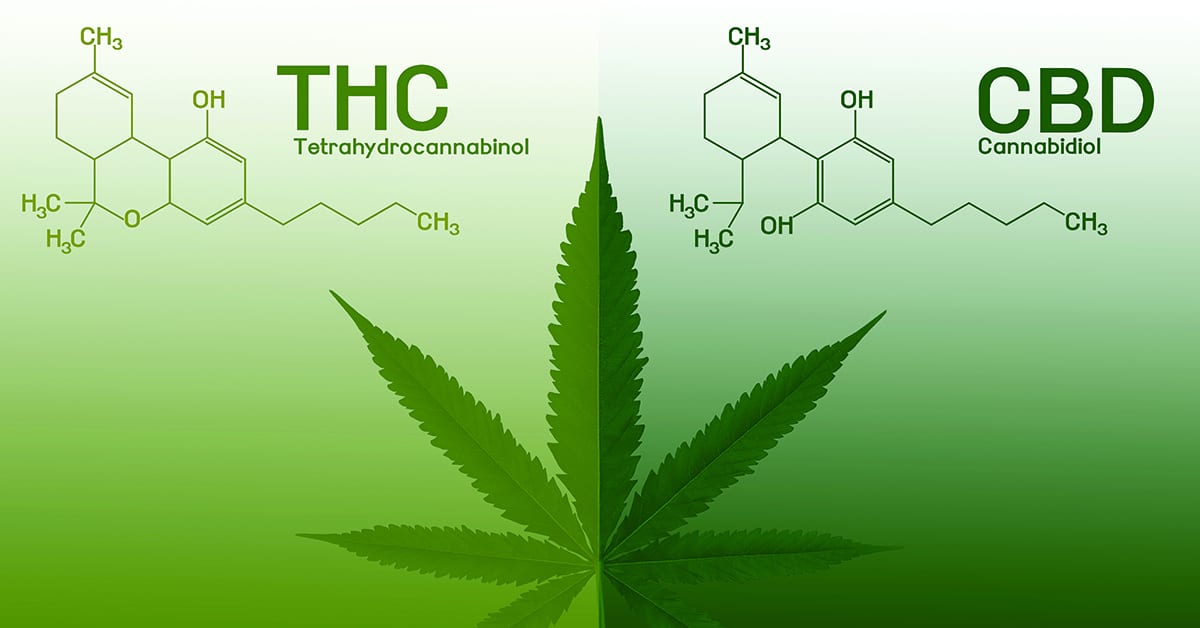According to research, CBD and THC are the most popular cannabinoids because of their roles in alternative medicine. Cannabidiol and Tetrahydrocannabinol are found naturally from the plant genus Cannabis Sativa plants such as hemp and marijuana. They may look alike, but in reality, their effects vary.
Both CBD and THC are both similar to the body’s natural endocannabinoid. They both interact with the cannabinoid receptors and then send off neurotransmitters to give signals to the body’s cells. When this happens, they make it possible for the brain to process and manage stress, sleep, anxiety, and pain.
These two compounds may have similar chemical structures, having 30 atoms of oxygen, 21 carbon atoms, and two oxygen atoms. But they differ in the arrangement, which is why they have different effects on the body.
CBD
CBD is a non-psychoactive compound. Many people are using it due to its health benefits. Study shows that it is anti-inflammatory, anti-oxidant, anti-convulsant, and antipsychotic. It can also give neuroprotection and prevents tumor growth. Other benefits of CBD are pain relief, fight cancer growth, anti-anxiety or anti-depression, nausea relief, stops epilepsy seizures, cardiovascular wellness, and prevents the occurrence of diabetes.
CBD became legal in some countries and states because of its low THC content of less than 0.3%. The effects will result in better health management rather than giving a person a high feeling or any psychotropic side effects often experienced by Marijuana users.
Medical conditions that CBD can address:
- Schizophrenia
- Seizures
- Depression
- After-effects of cancer treatment
- Social Anxiety Disorder
THC
THC is associated with medical marijuana. It has the effects of being high. It is anti-inflammatory; it stimulates appetite and aids in sound sleep. Some people have a good experience with moderate levels of THC, while some have unpleasant feelings.
Although THC and CBD can have benefits that cannot be experienced alone, research has shown that having high CBD with a lower THC content has better medicinal benefits to its users.
Medical conditions that THC can address
- After the effects of chemotherapy
- Chronic pain
- Glaucoma
- Multiple Sclerosis
- Spinal Injury
- AIDS
Side Effects
Based on studies, CBD does not give any side effects even after prolonged usage and higher dosages. It is found out that patients do not exhibit signs of toxicity or serious side effects. In cases where noticeable side effects were seen, it was mainly due to the effect of another drug mixed with CBD. Some studies also claim that CBD’s possible side effects are synthetic; thus, it is recommended to have USDA organic CBD products to be sure that the substance is pure.
On the other hand, THC has been proven to have side effects like muscle coordination problems, dry mouth, slow reaction time, red eyes, increased heart rate, and memory loss. The psychoactive content of the compound brings about these side effects.
Legality
Both compound’s legality is based on their respective concentration. In most states in the USA, CBD is not on the prohibited substance lists because of its low THC content and not extracted from Marijuana. Otherwise, it will become illegal unless it was given a permit to use as medical marijuana.
Both have similarities as well as they also have differences. Whatever purpose it will be used for, any person who wishes to use it must have a good grasp of where CBD and THC came from, and this will help the person choose

Leave a Reply